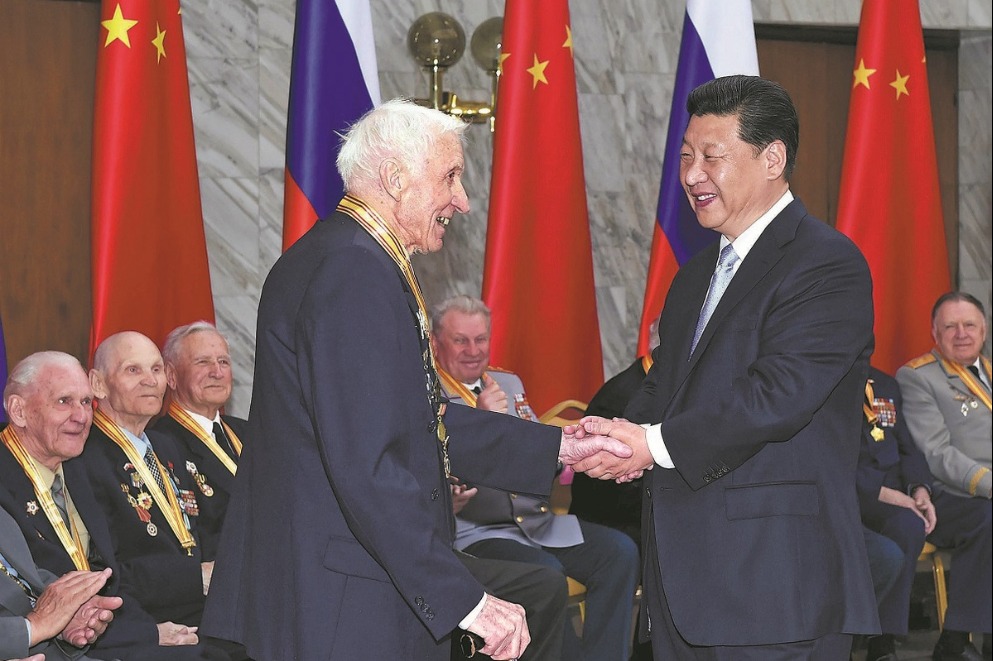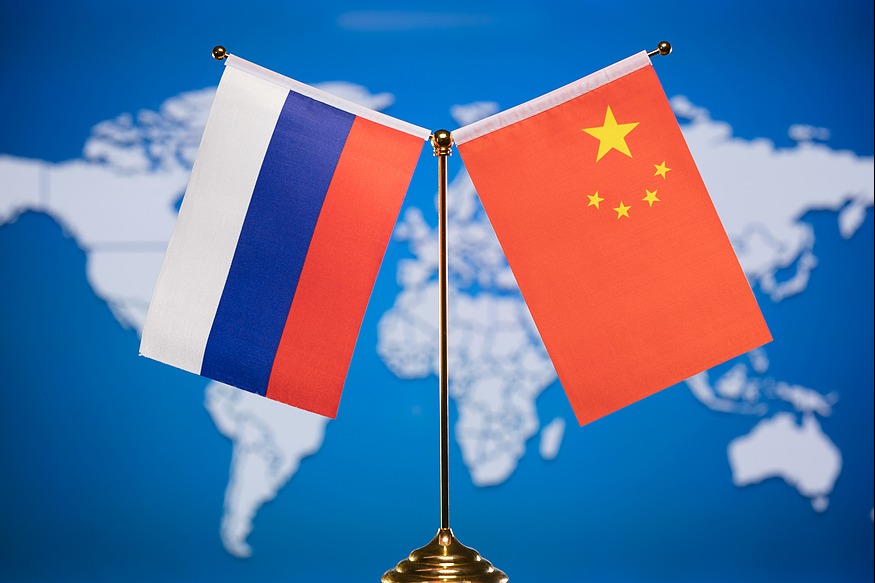Much potential to be tapped in AI cooperation


Science and technology in the former Soviet republics, especially in Russia, seemed to be in decline in the 1990s and the first decades of this century after being at the forefront of fundamental and applied research and development for decades. But now Russia seems to be catching up with the advanced economies thanks to its increasing competency in science and technology, especially in the field of mathematics and information and communications technology (ICT).
China, on its part, has transformed from an agricultural country into a science and technology giant. The country is also the world's second-largest economy with a massive network of premier educational institutions and high-tech companies. It is also a global leader in electronics and ICT.
Given that the world is changing at a rapid pace, there is a need for closer cooperation between China and Russia, which are economic partners and have a long history of educational and scientific exchanges. One of the prominent fields in which the two sides can deepen cooperation is artificial intelligence, including large language models (LLMs), which is most attractive to investors and most alarming to many social scientists. AI's economic benefits have not yet been fully appreciated and, at the same time, its ethical dangers not fully understood.
The leading AI companies in China and the United States require substantial investments in high-end hardware and power consumption for model training. As for China and Russia, the current segmentation of the world market has made them dependent on other countries for a significant percentage of hardware, which has been complicated further due to Western sanctions. This has created an opportunity for the two countries to collaborate in the ICT hardware sector, especially in semiconductors.
Besides, if AI development continues along the current energy consumption path, Russia's capability to provide energy resources and technologies for building carbon-free nuclear power plants could prove to be beneficial for both Russia and China.
However, as we have stated in our (Novosibirsk State University and the Russian International Affairs Council) latest review, the energy-consuming and cost efficiency needed for AI solutions based on LLMs raise concerns and call for a search for alternative solutions.
Transparency, interpretability and reliability are required to promote AI-based solutions in critical and sensitive applications such as energy, transportation, security, governance, finance and healthcare. The current state of an LLM-based solution requires its outputs to be controlled and validated by humans, which incidentally decreases their economic value, and makes it difficult to validate the models and their quality control.
The lack of adaptive learning of the mainstream LLM-based systems requires expensive re-training for every batch of novel information, which makes them inapplicable for operations in dynamically changing environments. This in turn requires experiential learning and adaptation to new circumstances.
These issues raise concerns over achieving so-called artificial general intelligence (AGI) in the future, which could become a technological barrier, the overcoming of which could bring immense benefits.
While the current academic and technological environment in China has facilitated superior adoption and increased employment, enabling the country to overcome the mainstream technological barriers created by Western vendors and institutions, Russia is competent in key research and alternative and complementary domains.
To address the energy-efficiency, interpretability and adaptability issues of AI, Russia needs to develop advanced and hybrid models combining the mainstream approach with logical and symbolic AI technologies, use semantics and probabilistic reasoning on knowledge graphs, and employ physiological and psychological principles developed by Russian schools. Leading Russian research institutions, including the Russian AGI Community, 12 federal AI research centers such as Novosibirsk State University, the Artificial Intelligence Research Institute, and other institutions have the capability of carrying out this task.
The rapid advances in AI raise concerns over the misuse of AI and AGI, which could trigger political instability, social upheaval and economic distress. The risk of instability is high because some countries are using their dominance in this area to browbeat other countries into submission and thwart collaboration between countries they consider a threat.
This calls for deeper cooperation among countries that want to build a fair world order — under the BRICS framework for instance — for mutual benefit instead of imposing their domination over the rest of the world.
The Russian scientific community is open to joint promotion with China and other like-minded countries of global coordination on and governance of AI and AGI domains. It welcomes other countries to participate in open events such as workshops of the Russian AGI community and joint conferences such as MathAI, and improve the joint strategy for governing artificial intelligence technology, recently initiated by the Indian-Chinese-Russian AI Committee.
The author is the lead research scientist at Novosibirsk State University, a founder of the Russian AGI Community and an expert at the Russian International Affairs Council.
The views don't necessarily reflect those of China Daily.
If you have a specific expertise, or would like to share your thought about our stories, then send us your writings at opinion@chinadaily.com.cn, and comment@chinadaily.com.cn.

































